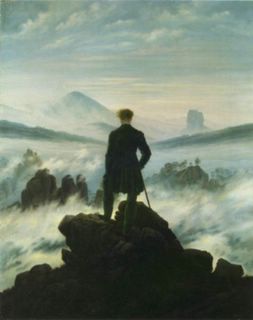In his History of Philosophy survey course, Brigham Young University Professor Mark Wrathall likes to quote famous thinkers to illustrate tenets of existentialism.
Sartre? Kierkegaard?
Rock band U2.
"They're so much more quotable than most philosophers," says Wrathall of the Irish rockers, who are being inducted today into the Rock and Roll Hall of Fame. Wrathall has incorporated U2 song lyrics into many of his classes and even plays the band's CDs and videos for his students. "It's easier to spout a U2 line as an answer to a philosophical question than, say, Kant."
Courses on contemporary pop culture are increasingly common on university campuses. One small Christian school, Calvin College in Grand Rapids, Mich., recently offered a class on U2 and religion. But Wrathall, who is working on a forthcoming book, U2 and Philosophy, is perhaps the first professor to seriously analyze the philosophical implications of the band's lyrics.
A longtime fan of U2, Wrathall hit upon the idea in 1997 while driving to Provo from California.
"I remember it very clearly. I was in the middle of the Nevada desert, listening to 'Last Night On Earth' from the 'Pop' album," he says. "I was struck by how Nietzschean the song was, and I thought, 'Wow, I could really use this in my lectures.' "
Wrathall has identified several distinct philosophical stages of U2's 25-year career. As he sees it, the band's early songs reflected traditional Christian pessimism. By 1987's "The Joshua Tree," however, U2 had begun to question whether religious faith alone could fulfill a person: "You carried the cross/And my shame/You know I believed it/But I still haven't found what I'm looking for."
The next stage, from 1991's "Achtung Baby" through 1997's "Pop," found the band flirting with existential despair. In embracing the view that humans are responsible for their own actions, U2 recognized the anguish inherent in such a burden.
Its current phase, beginning with 2000's "All That You Can't Leave Behind," shows the band rediscovering its Christian roots to achieve a sort of existential joy. On "Beautiful Day," frontman and chief lyricist Bono sings, "what you don't have, you don't need it now." On its recent song "Vertigo," U2 celebrates earthly love as a form of spiritual fulfilment.
Wrathall sometimes passes out U2 lyric sheets in class to help his students decipher songs' meanings. He believes his U2 lessons help bring some life to dry philosophical concepts. And what better way to grab the attention of the MTV generation than through rock music?
"Students tend to miss the connections between what we say in class and the rest of their lives," says Wrathall, who earned a law degree from Harvard and a doctorate in philosophy from UC-Berkeley before coming to BYU. "So it's nice to be able to show them that even the most abstract philosophy can be seen every day in pop culture."
His students agree.
"It's really helpful," says senior Josh Gillon, a philosophy major. "I'll never listen to U2 the same way again."
"It's a real fun way to learn," adds fellow senior Steve Stakland. "Because it's contemporary music . . . it's easier to relate to. Whereas if he just told us to read Kierkegaard, it wouldn't make nearly as much sense."
Parents, don't fret - Wrathall still makes his classes read Kierkegaard, Nietzsche and other great thinkers. But he gets more requests for his U2 lectures.
The professor is editing a book on the philosophy of U2's music, to be published as part of a series in 2006 by Open Court, an Illinois-based publishing house. Previous books in the series have probed the philosophy of such pop-culture phenomenons as "The Simpsons," the "Matrix" movies and the Harry Potter books.
All his scholarship, however, can't get Wrathall tickets to U2's Salt Lake City concert in December. Nor has it won him any special access to the superstar rock band. But that's OK with him. Says Wrathall, "They're doing just fine without me."
By Brandon Griggs
The Salt Lake Tribune





 John Clare (1793-1864)
John Clare (1793-1864)

